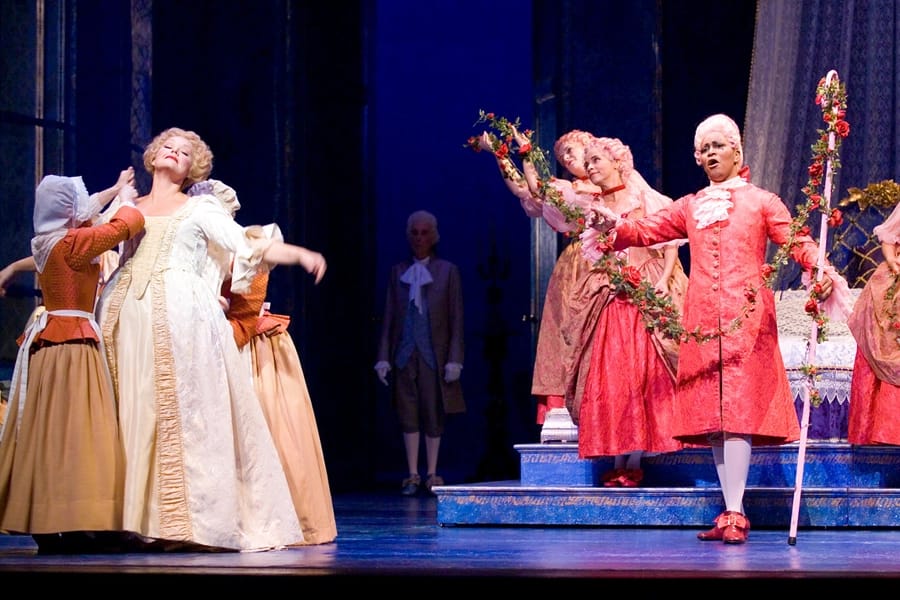
articles / Puccini
Puccini’s First Triumph, at San Francisco Opera

The libretto has a bad case of ‘too many cooks’, but Giacomo Puccini’s opera Manon Lescaut is the work that placed him firmly as Verdi’s successor. In fact, Nicola Luisotti, who’s conducting it at San Francisco Opera through the 26th, says Verdi’s last big work, Falstaff had its premiere within a week of this, Puccini’s third. And although the storyline goes astray, he says the music will take you to paradise.
There’s more information about the production at the San Francisco Opera website.
“It was a big change in the world of Italian music. Because a star like Verdi was producing his last important work, it was Falstaff. Another star was born. The star was Giacomo Puccini, with Manon Lescaut.” The popularity of the work rests on the music, Luisotti says, considering the muddle of librettists who all had different priorities. Puccini’s first two operas, Le Villi and Edgar, had libretti by Ferdinando Fontana, but the composer wasn’t happy with them. “He tried to have a relationship with [Marco] Praga , with [Domenico] Oliva, that was two librettists, then they left the project. And then [Giulio] Ricordi put some stuff inside. And [Ruggero] Leoncavallo put some stuff inside the libretto. [Luigi] Illica and [Giuseppe] Giacosa put some stuff in the libretto. And of course, Puccini. But everyone refused to put their name on the front page of the score.” But despite not explaining plot points that appear in the novel by Abbé Prévost (like why some of the action takes place in New Orleans), the opera works, Luisotti says, if you don’t try to make too much sense of it. “If you close your eyes, or if you just let your body, your mind be waved by the music of Puccini, the story of Manon Lescaut will be inside of this incredible symphonic poem with text. The story, the libretto is completely confusing, but fortunately, the music is not confusing at all. It’s this big score, with the symphonic… Full symphonic piece for the orchestra, with singers. And altogether will bring the audience to Paradise.”






